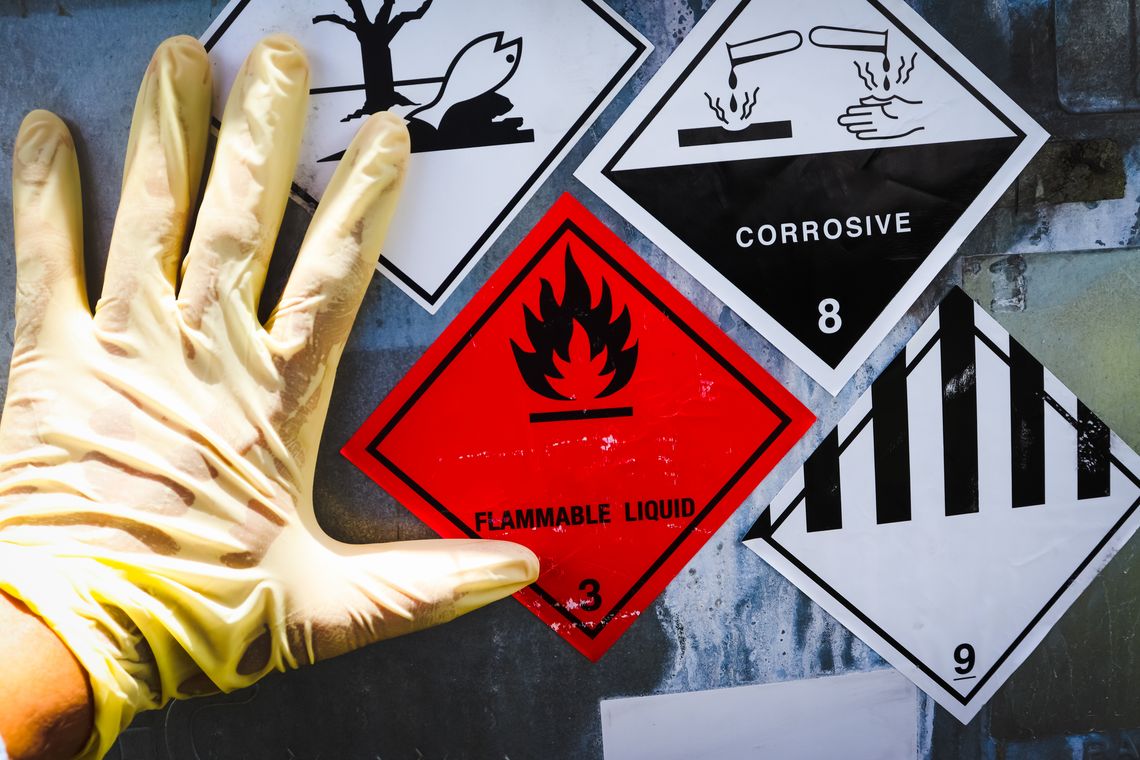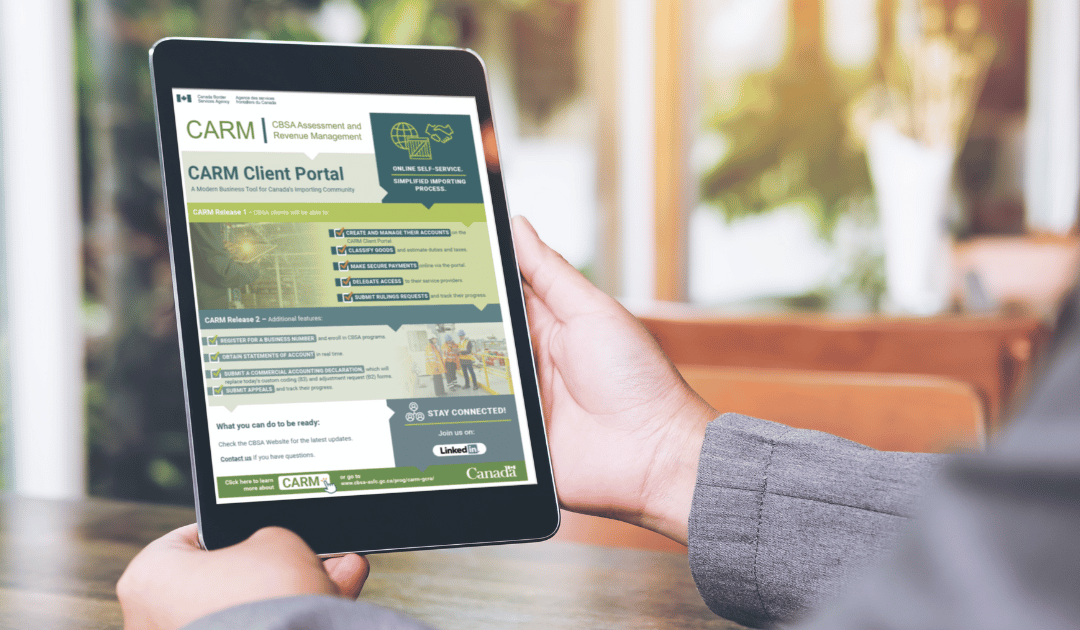Before you start selling in Canada, it’s important to know if there are any prohibitions or restrictions on the products you sell.
Some products are prohibited and cannot be shipped to Canada, while others have import restrictions and may require specific licenses, permits, certificates, or other documentation to clear customs. Knowing which rules apply starts with understanding how the Canada Border Services Agency (CBSA) views your product. The Harmonized System (HS) classification is a 10-digit code that Canada customs uses to determine if import prohibitions or restrictions apply to your product.
⚠️ Controlled or Restricted goods
Controlled or restricted goods are products that are regulated by “Other Government Departments” like Health Canada or the Canadian Food Inspection Agency. Commonly called OGD, these products require specific conditions, inspections, licenses, or permits to be imported. It is important to correctly identify any package that contains controlled products or substances to avoid being held or confiscated at customs.
While it is possible to ship restricted goods, the import requirements depend on other factors like the intended use (for resale or for a consumer’s personal use), the shipping method (postal shipments have different requirements than shipments with other carriers), the country where the product was made (country of origin), and even the quantity being shipped.
Here are some examples of common restricted and prohibited products:
🐮 Animals or animal productsAnimal and animal product import requirements are regulated by the Canadian Food Inspection Agency (CFIA) via the Automated Import Reference System (AIRS). Needed information includes the Harmonized System (HS) classification, origin, destination, and end-use. Note this is a large category that includes hides and skins, live animals, pet food, veterinary biologics, etc. Review Import policies: animal products and by-products for guidelines. |
🌿 CBDCanada is very protective of its domestic cannabis industry, and CBD can only be imported under very specific conditions. The CBD must be sourced and manufactured in Canada. Even Natural Health Products and cosmetic regulations limit which parts of a cannabis or hemp plant and their derivatives can be used. Review Canada’s Cannabidiol (CBD) for more info. |
🧴 Cosmetics + personal care productsTo sell cosmetics in Canada, brands may want to complete the Cosmetic Notification Form. Review the Canadian Cosmetic advertising, labelling and ingredients document for specific information about advertising claims, marketing terms, and label requirements. The Government of Canada has a Cosmetic Ingredient Hotlist which lists the ingredients that are prohibited to use in cosmetic products, and then a list of ingredients that are restricted under certain amounts and their application or use. |
🔥 Dangerous goodsThe material safety data sheet (MSDS) created by the manufacturer includes safety and transport information, UN-number, proper shipping name, class, label, and hazard identification code. The hazard classification category from the MSDS will determine which label is required for your package. Examples of dangerous goods include aerosol sprays, cologne, dry ice, lighters, matches, nail polish, nail polish remover, paint, perfume, solvents, and some chemicals. |
🧨 Explosives, fireworks, and ammunitionNatural Resources Canada (NRCan) Explosives Regulatory Division (ERD) controls the type and quantity of authorized explosives that may be imported into Canada. An annual or single-use Import, Export, or In Transit permit is required to import explosives for commercial use. Learn about the permits required for explosives in Importing, exporting, and transporting-in-transit. Personal exemptions for imports without a permit exist for personal use, including small arms cartridges without a tracer, incendiary, or similar military component, or when the type and amount of explosives are under a specific threshold. The Explosives Regulations table details the type and quantity thresholds for imported explosives, fireworks, and ammunition. |
⚔️ Firearms and weaponsCanadian residents importing a newly acquired non-restricted firearm only need a possession and acquisition license for import and a valid purpose i.e. hunting, competitions, or protection against wildlife. Restricted firearms require a possession and acquisition license, a firearm registration certificate, an Authorization to Transport (ATT) from the Chief Firearms Officer of the province of entry, and an import permit by Global Affairs Canada. Prohibited firearms are prohibited and blocked from import. Review Import and export a firearm or weapon into Canada for more info. |
🍎 FoodUnless you are a B2B brand warehousing food to be resold in Canada, the Safe Food for Canadians Regulations allows for most consumer packaged goods (CPG) food products to be imported for personal use. Most CPG food products purchased online are eligible for a personal use exemption as long as it isn’t resold for commercial use and the amount purchased is below 20 liters or 20 Kilograms. |
🐶 Pet FoodPet products can be very challenging to import. The Canadian Food Inspection Agency (CFIA) regulates imported pet food and treats including pet food containing animal-origin ingredients, pet treats, and compound chews. Details about food requirements, permits, and labeling can be found on the Canadian import policies: pet food webpage. |
💊 SupplementsMost supplements and vitamins are exempt from registration requirements if they are for personal use and have less than a 90-day supply. However, certain ingredients may cause the product to be considered a drug or a non-prescription drug. Health Canada regulates both natural and non-prescription health products. It assigns a unique Natural Product Number (NPN) after assessing if a product is “found to be safe, effective, and of high quality.” |
🚘 VehiclesThe Registrar of Imported Vehicles (RIV) determines which vehicles are eligible for import per the Registrar of Imported Vehicles Compatibility List and oversees vehicle admissibility and customs requirements. Review the RIVs Before you import page for details. |
❌ Prohibited goods
Prohibited items are forbidden by law and may be seized by the Canada Border Services Agency. Examples of prohibited items include illegal substances, firewood, weapons like tasers, brass knuckles, pepper spray, radar detectors, and obscene materials.
For full details visit the Canadian Border Service Agency’s Restricted and prohibited goods webpage.
How Passport can help
Passport’s team of licensed customs brokers and trade advisors can help you understand the customs and trade regulations for your products. From proper commodity classification and description of goods to reduce customs holds to an evaluation of restrictions and prohibitions by product, our goal is to help you be successful in selling to Canadian consumers. Reach out to hello@passportshipping.com to get exporting today.




